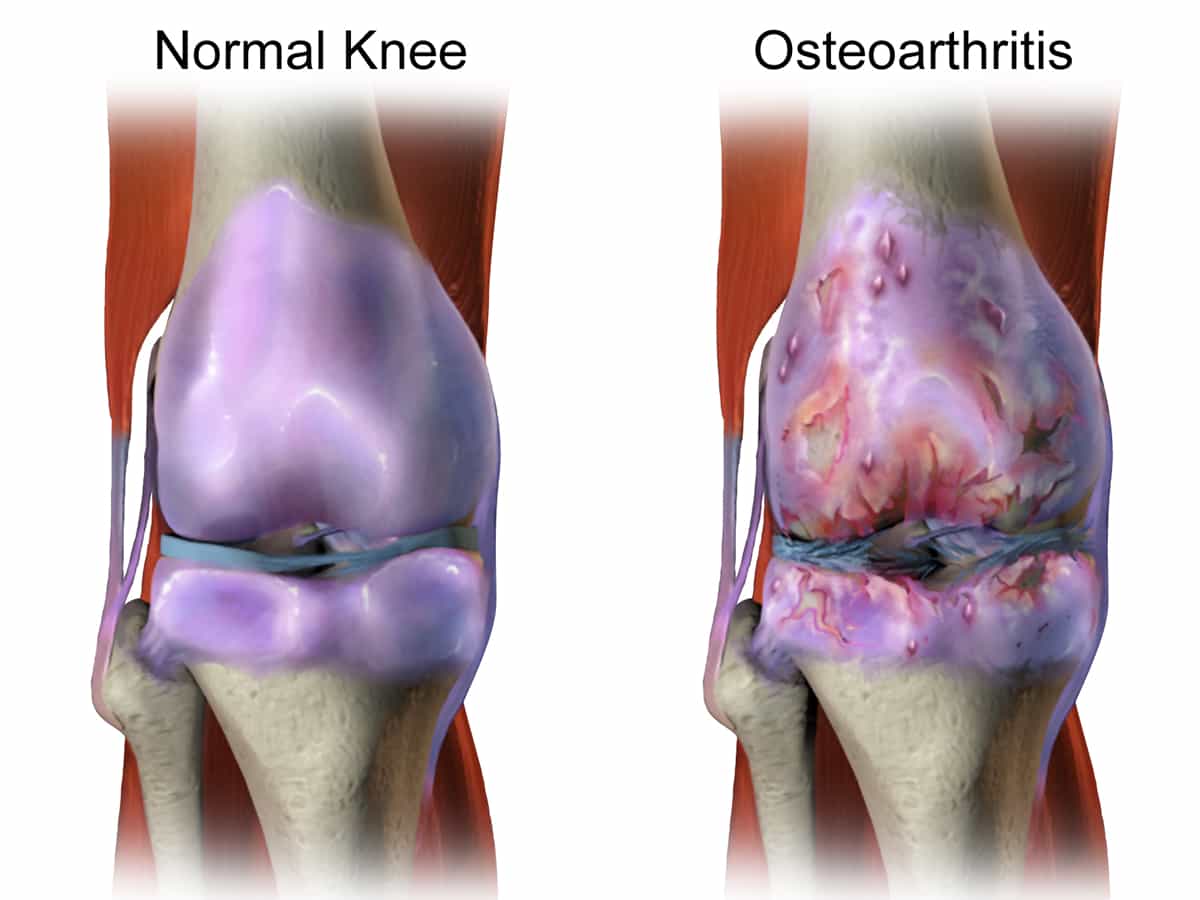
Knee Arthritis
Knee arthritis, wearing and loss of protective cartilage of the knee joints over time. It is the most common joint affected.

Types
Osteoarthritis: It is degenerative wear and tear of the joints due to ageing, it affects people usually fifty years and above.
Rheumatoid Arthritis: It affects the synovial membrane that covers the knee joint and leads to swelling of the knee joint, it is caused due to autoimmune disease.
Post-Traumatic Arthritis: It develops after an injury to the knee joint, as the broken bones damage the joint surface and lead to arthritis.
Knee Arthritis Causes
Ageing, Trauma/Fracture and increased stress on the knee joint such as overuse or obesity, infection of bones, connective tissue disorders inactive lifestyle are the leading causes.
Knee Arthritis Symptoms
The affected joint is painful and swollen, other symptoms include swelling and stiffness of joint making it difficult to bend and straighten the knee, crepitus noise during movement and joint pain during cold & rainy weather.
Knee Arthritis Diagnosis
Diagnosis is done through the patient’s medical history and physical examination. The doctor will request for X – rays and MRI scan to check the extent of tissue damage. Performing some of the Blood tests we can rule out rheumatoid arthritis.
Management
Non Surgical Management:
To relieve pain
- NSAIDs and weight loss regime to decrease knee pain,
- Exercises & Physiotherapists input,
- Braces can provide support with physical therapy to improve the flexibility of the joint.
- Injection of PRP/Stem cell therapy has shown great benefit in cartilage wear.
- Regrowing of cartilage is done in younger patients with cartilage defect.
Surgical Management:
when other options do not work surgery is the best option which includes-
Arthroscopic ( Keyhole Surgery): it is performed by inserting telescope by a small incision to remove the damaged cartilage.
Osteotomy: By performing Osteotomy by changing the shape of bones in younger age group we can improve the knee alignment.
Joint Replacement Surgery: Half knee replacement (Uni-condylar knee replacement), Total knee Replacement (Replacement of artificial parts made up of metals and ceramics in the Joints).
Reach Dr. Sai Krishna B Naidu – Best Orthopedic Surgeon for Knee Surgery
Contact Form
Fortis Hospital, Richmond Road
Consultation:
Monday to Saturday : 11.00 Am – 02.00 Pm
Medray Diagnostic Centre
Consultation:
Monday to Saturday : 03.00 Pm – 05.00 Pm
Copyright 2019 © All rights Reserved.

